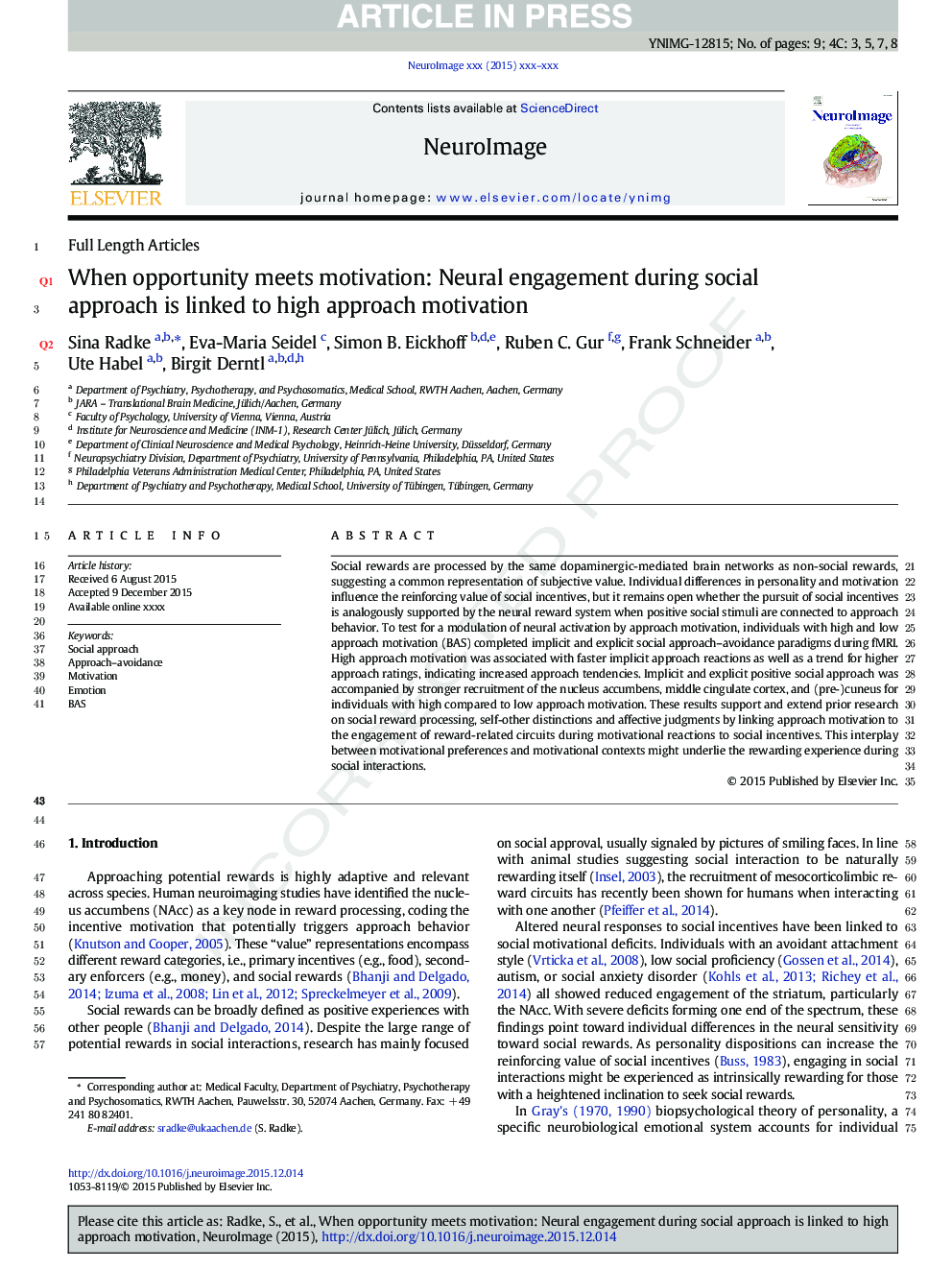| Article ID | Journal | Published Year | Pages | File Type |
|---|---|---|---|---|
| 6024572 | NeuroImage | 2016 | 9 Pages |
Abstract
Social rewards are processed by the same dopaminergic-mediated brain networks as non-social rewards, suggesting a common representation of subjective value. Individual differences in personality and motivation influence the reinforcing value of social incentives, but it remains open whether the pursuit of social incentives is analogously supported by the neural reward system when positive social stimuli are connected to approach behavior. To test for a modulation of neural activation by approach motivation, individuals with high and low approach motivation (BAS) completed implicit and explicit social approach-avoidance paradigms during fMRI. High approach motivation was associated with faster implicit approach reactions as well as a trend for higher approach ratings, indicating increased approach tendencies. Implicit and explicit positive social approach was accompanied by stronger recruitment of the nucleus accumbens, middle cingulate cortex, and (pre-)cuneus for individuals with high compared to low approach motivation. These results support and extend prior research on social reward processing, self-other distinctions and affective judgments by linking approach motivation to the engagement of reward-related circuits during motivational reactions to social incentives. This interplay between motivational preferences and motivational contexts might underlie the rewarding experience during social interactions.
Related Topics
Life Sciences
Neuroscience
Cognitive Neuroscience
Authors
Sina Radke, Eva-Maria Seidel, Simon B. Eickhoff, Ruben C. Gur, Frank Schneider, Ute Habel, Birgit Derntl,
